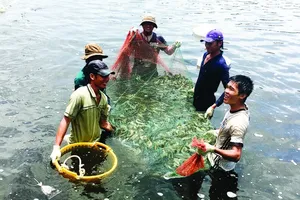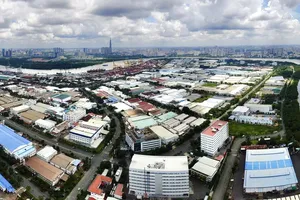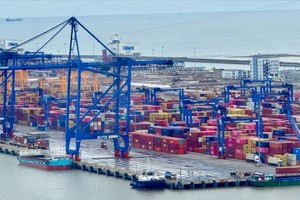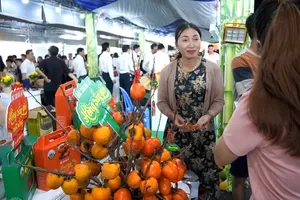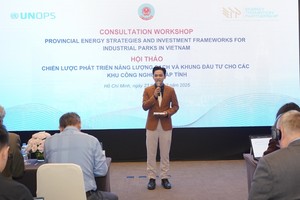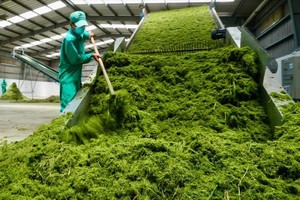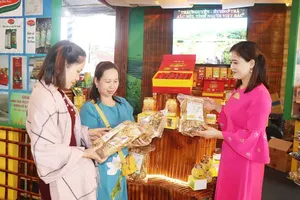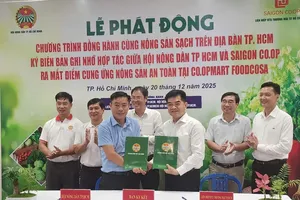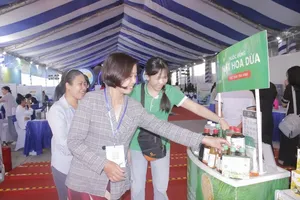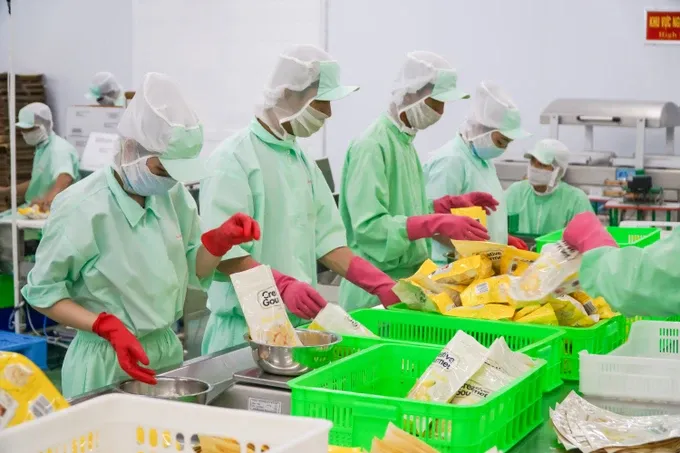
In any produce value chains, farming is the stage with the lowest profit whereas the phases of processing, brand name development, and sales comprise more than 80 percent. Even though the processing industry is one critical part of the manufacturing – processing – distribution chain of agricultural products in the Mekong Delta area and the country in general, it is sadly also the weakest link.
Deputy Head of the Agency of Foreign Trade (under the Ministry of Industry and Trade) commented that for many years, most of the produce in Vietnam have been sold unprocessed either because produce collectors cannot invest in technologies for intensive processing or because foreign partners wish to buy those products as raw materials for their processing later.
According to the Vietnam Chamber of Commerce and Industry (VCCI), the state of exporting unprocessed produce leads to profits not as high as expected. For instance, the price of raw coffee beans is only US$2,400 per tonne whereas that of processed coffee is must higher, at $3,600 a tonne. It is, therefore, critical to focus on investing in post-harvest processing techniques for agro-forestry-fisheries products.
Recent upgrades in traffic facilities in the Mekong Delta region have made this matter much more feasible. Can Tho City has taken advantage of these improvements to accelerate the establishment of a center to link the manufacturing – processing – distribution of agro-forestry-fisheries products in the region as directed by the Government.
With the motto of ‘One Destination – Multiple Services’, when in operation, this center is going to contribute to the forming of a production chain among farmers – manufacturers – import-export companies. In this chain, the stage of processing will receive special attention to increase both product quality and value.
VCCI also shared that agro-forestry-fisheries product processing in the Mekong Delta region mostly depends on domestic enterprises. There should be encouraging policies to attract the participation of FDI companies as well.
Former Minister of Agriculture and Rural Development Cao Duc Phat affirmed that it is necessary to heavily invest in produce processing, trading, brand name development to have more added values and to be well-prepared for strict but lucrative markets like the US, Japan, or Europe.
Chairman Nguyen Thanh Binh of the Vietnam Fruit and Vegetables Association proposed that the Government and localities should introduce more supporting policies, especially in the aspect preferential loan interest rates, for businesses to invest in their processing technologies.
The Crop Production Department (under the Ministry of Agriculture and Rural Development) also suggested a similar idea to provinces in the Mekong Delta region and the whole country in general so that the proportion of unprocessed product exports reduces in the future. The Department is going to work with localities in need to raise the output of processing facilities sited in standard raw material areas, to create manufacturing – processing – preservation chains for these types of products, and to increase the number of businesses or cooperatives in the fields of produce preservation and processing.
One important fact is that the intensive processing of agro-forestry-fisheries products helps to maintain quality for a longer time, allowing farmers and export businesses to be more active in their trades and minimizing the state of oversupply.
Deputy Director Le Thanh Hoa of the Agro-Processing and Market Development Department (under the Ministry of Agriculture and Rural Development) informed that Vietnam has so far attracted much investment in agriculture, including the processing sector. Certain localities have gained impressive results like the provinces of Dong Thap, Long An, Lam Dong, and Lao Cai.
Particularly, Son La Province is planning for a hi-tech agricultural area with 5 produce processing projects with a total registered capital of VND2.77 trillion (US$ 112.5 million). In October 2023, the province welcomed the operation of Son La Coffee Processing Plant with a total capital of VND260 billion ($10.6 million) and a total capacity of 50,000 tonnes of coffee pods or 12,500 tonnes of green coffee beans a year. This is the largest in the Northwest region.
In 2023, Tien Giang Province also saw the operation of the largest pineapple processing plant in the Southwest region that meets European standards. The plant has a total investment of VND666 billion ($27 million) and a total capacity of 30,000 tonnes a year.
In general, however, the food – produce processing industry in Vietnam still cannot answer all the needs, neither can it introduce many reputable brand names. It is high time to develop a suitable strategy to increase both the scale and proportion of processed produce in the export volume to earn more value.
On January 28, 2022, the Prime Minister signed Decision No.150, approving the Sustainable Agriculture and Rural Development Strategy until 2030, with a Vision to 2050. Six months later, the Government released Decision No.585, greenlighting Strategy for Agricultural Mechanization and Agro-Forestry-Fisheries Product Processing until 2030. In both documents, large-scale, modern, hi-tech businesses of agricultural product processing are the priority to lead the value chain.
Many economic experts commented that the above documents display the Government’s determination to heavily invest in the industry of agro-forestry-fisheries product processing, with clear detailed steps. The reality, however, is not as expected.
The reason is, according to several associations of different industries, a lack of specific policies (financial aid, human resources training) to reach the set targets. Only by addressing these inadequacies can the agriculture sector of Vietnam escape the state of depending on foreign partners.
